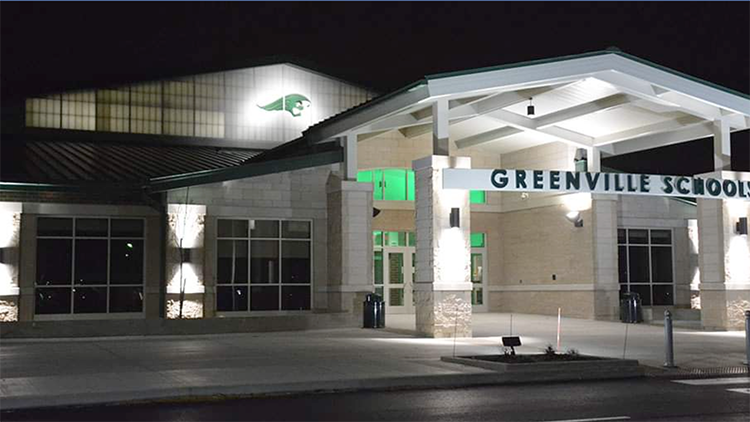
By Susan Dankworth, K-2 Principal
Kindergarten is one of the most celebrated times in a child’s life. It is the official launch into the school-age era, not only for the students, but for their families as well. Just a mention of the word Kindergarten sparks memories in the hearts and minds of parents everywhere — and for good reason! Kindergarten sets the stage for a child’s acceptance and involvement into the official school setting, where he or she will commit the next twelve years of their lives to learning about their personal strengths, needs, and limitations; the importance of friendships and social relationships; and, of course, academics. It’s a time that cannot be taken for granted because the quality of their start in Kindergarten can have a direct impact on their ability to thrive in the years that follow, both inside and outside of the school walls.
Each spring at Greenville Elementary, a team of nurses, teachers, speech therapists, and administrators gather together to screen incoming Kindergarten students for the following fall. We meet with families to share information about our school and answer many questions about our processes and expectations. Our student screening tools gather information about children’s abilities to recognize letters and numbers, count, write their names, and communicate with adults. We also assess their independence and their ability to separate temporarily from their parents to complete the screener. Finally, we test for vision and hearing difficulties and possible speech issues. All of this data helps us to assess each student’s capabilities and needs so that we can balance our classrooms and match particular needs with necessary re-sources in our building.
So, what can parents do to ensure that their child is ready for all of this? In my experience as a Kindergarten principal and mother of three, I feel strongly that there are 3 incredibly important prerequisites to help ensure success for your Kindergarten student: verbal communication at home, reading books, and attendance at preschool.
Something that is often taken for granted when it comes to Kindergarten readiness is the act of verbal communication. Simply talking to your child on a regular basis helps them to understand the language exchange between people. It also helps them sort through how to make decisions and how to answer simple questions. Verbal communication skills are also important because they help children vocalize problems or concerns. When working with small children, it can often be a guessing game trying to figure out what is wrong or what they don’t understand. Being able to express themselves is so important to helping us help them. These communication skills are also vital to social relations with other students in the classroom, during lunch, on the bus, and on the playground. Turning off the electronics and having a good old-fashioned conversation will go a long, long way toward helping your young child maneuver through the school day.
The second most important thing to remember when readying a child for kindergarten is reading with your child. Talking with children about books and discussing things like characters, emotions, and happenings in the story help to build foundational reading skills before a child learns their letters and sounds. This ability to understand that books have meaning and that these words help us learn are particularly important to the development of not only their reading skills but their language processing skills as well. One book a night through the toddler and preschool years will offer these children hundreds of hours of experience before they ever step into the classroom.
Finally, we cannot overstate the importance of preschool. This experience not only gives children a headstart on foundational academic skills, it also introduces them to classroom routines, normative behaviors, and social interactions — with adults and peers. In addition, it allows children to gain independence by temporarily separating them from family members, which is important for a child’s maturity process. Whether a child attends one year or two, this exposure offers students a great amount of experience in the school setting, which can have a positive effect on confidence levels when Kindergarten begins.
Greenville City Schools Kindergarten Registration for the 2022-2023 school year will held on April 4 – 12, with evening hours on April 11 – 12. Once the enrollment process is complete, parents can sign up for a screening appointment. This year’s Kindergarten Screening will take place April 25 – 28, 2022, at the elementary school.
Kindergarten
What an exciting time!
We encourage everyone to set their children up for success through early learning and ideas from the readiness process introduced here. Should you have questions about Kindergarten enrollment or the school-age process, please feel free to reach out to the elementary school office. We look forward to meeting you!
Birth – Pre K Ohio Learning and Development Standards:
Ohio Department of Education K-12 Learning Standards
http://education.ohio.gov/Topics/Learning-in-Ohio/OLS-Graphic-Sections/Learning-Standards

